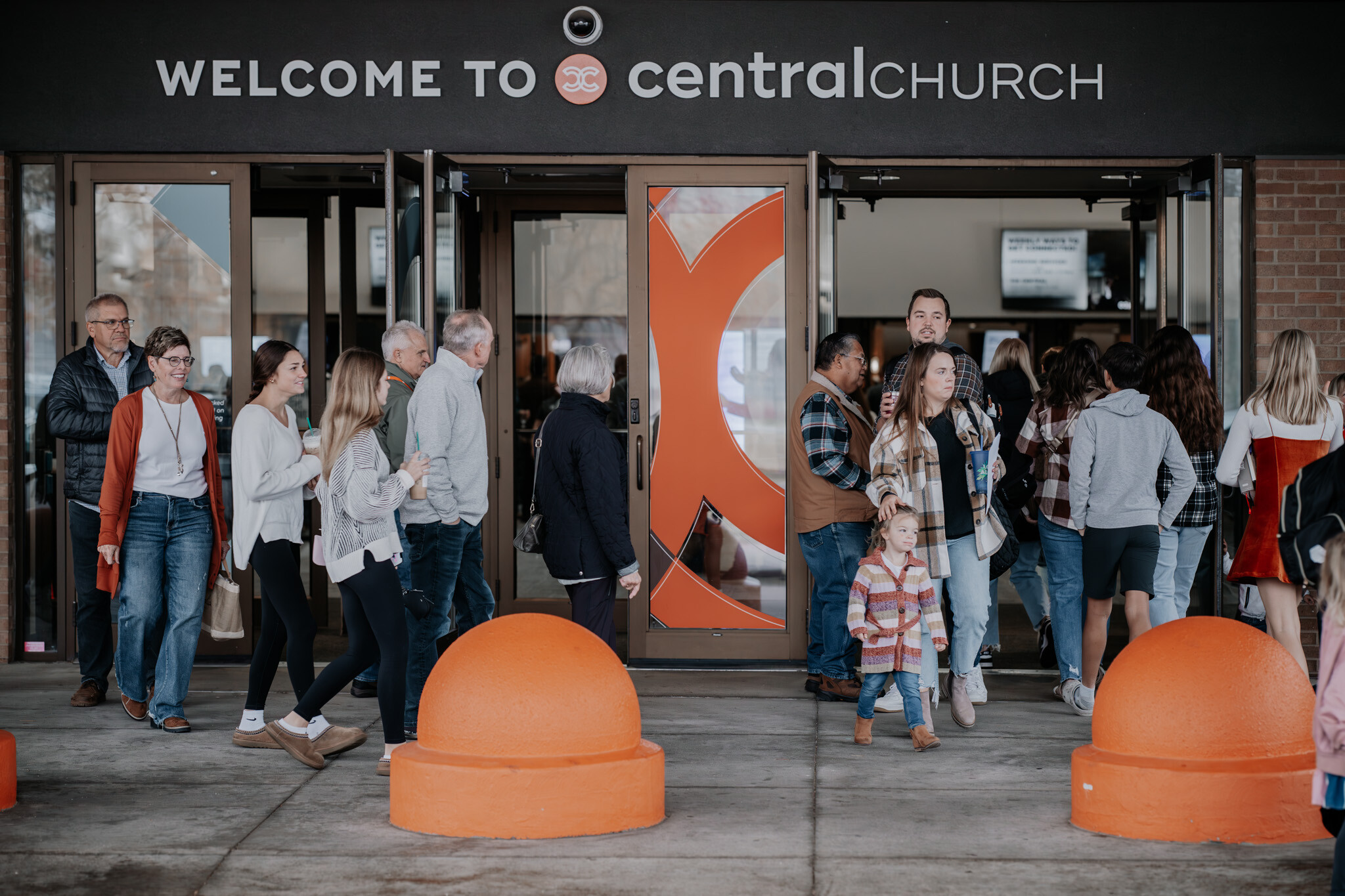Central Church's Origin of Oikos

I was told Pastor Tom Mercer from High Desert Church (in Victorville, CA) was going to be speaking at the church in California where I was an associate pastor. He was going to be talking about “oikos.”
“Why did we need a pastor to talk to us about Greek yogurt?” I thought. All kidding aside, I had never heard the word used in any other way until this message. And it was life changing.
I’m an introvert. So the concept of “evangelism” (sharing our faith story with others) always intimidated me. It brought back memories of people with bullhorns preaching about Jesus on the street corners at Huntington Beach. Or people handing out gospel tracts to strangers or going door to door and talking to people about the Bible. No thanks! I get hives just thinking about it.
Tom explained that oikos was a New Testament principle for every Christian, even petrified introverts. The Greek word oikos in the New Testament means family, house, or household. It is the circle of people you already have relationships with, not strangers. It’s your relational world. In the time of Jesus it included family, extended family, servants, and those who might have helped run a family business. And Tom said we all have an oikos.
My oikos consists of people I work with, go to school with, play tennis with, and live by. In other words, it’s those people God has already supernaturally and strategically connected me with relationally.
Now, I don’t have a relationship with everyone at my work, or everyone at my school, or everyone in my tennis league, or all of my neighbors. But I do have a relationship with some of them. And that some makes up my oikos.
Tom said it wasn’t my job to save people in my oikos. I just had to be myself, and tell the people in my oikos that I was a Christian and how Jesus made a difference in my life. I could do that! Just don’t ask me to knock on the door of my neighbor Mike four houses down from me. Again, hives. Be authentic, tell my story, and God will do the rest.
Our story is most powerful to the people in our oikos because they know us best. They sit in the front row watching our lives every day, and they can smell a phony a mile away. But if there has been a genuine change, they know that, too.
In Mark 5 Jesus encounters a severely demon possessed man and heals him. His messed up life gets radically changed. When the man wants to go with Jesus on his speaking tour, Jesus said “no.” Instead, Jesus said, “Go home to your oikos and tell them the wonderful things God has done for you and how he had mercy on you (Mark 5:18-20).” When this man spoke lucidly to those who knew how messed up he was, it gave power to the gospel. The people in his oikos started thinking, “If God can help that guy, he can probably help me!”
That day Tom asked us to raise our hand if we came to know Jesus as a direct result of a person we knew (a friend or family member). Maybe they shared their faith, or gave us a book to read or invited us to church with them. Then he asked us to raise our hand if we came to know Jesus by some other means (went to a crusade, heard a sermon on Christian TV or a Christian podcast or just started reading the Bible on our own). 90 percent of the hands that went up were because of a personal relationship with someone. Oikos. That’s because oikos is God’s plan to save the world. One life at a time through one relationship at a time.
I love the oikos principle because it’s natural. It doesn’t involve awkward conversations with strangers. In the normal course of my day, with people I already know and am comfortable with, I simply have to talk about what I’m most familiar with…ME! And tell them how a sinful and imperfect person like me could be loved and wonderfully saved by God, even though I don’t deserve it. It can happen on the tennis court, at the gym, or across from my cubicle at work. You’re not responsible to change THE world. But you are responsible to help change YOUR world. Your relational world. One life at a time. It’s called OIKOS.
We all have a story, and we all have an oikos. Jesus asks us to go to our oikos and tell them the wonderful things he’s done for us. I can do that. Can you?